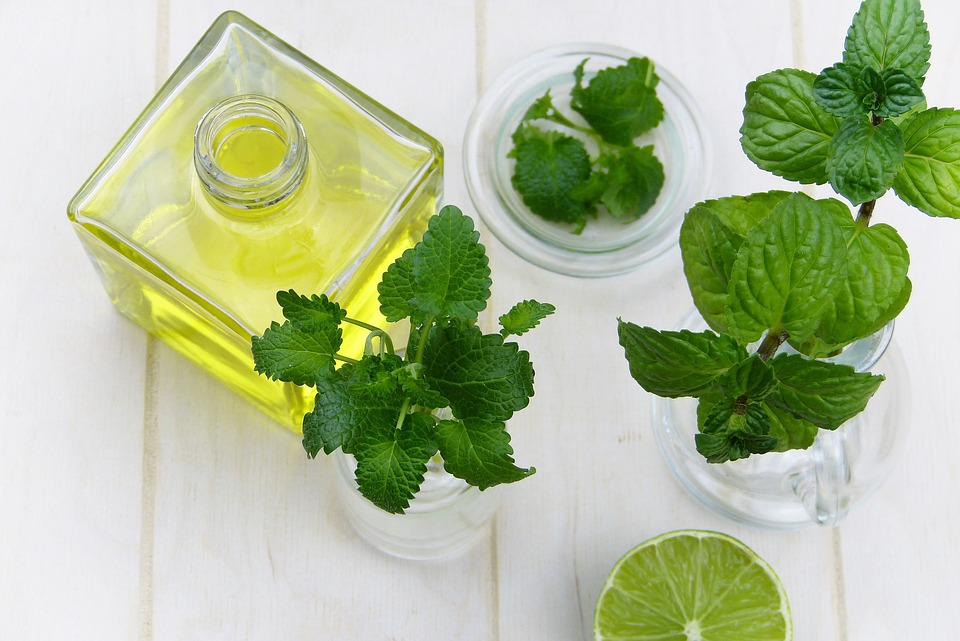Who doesn’t like picnics or camping? Traveling and trekking are becoming the ‘in thing’, and so are the itchy mosquito bites. Apart from the common bacterial and viral infections, mosquito-borne diseases are on the rise. Forget traveling or camping, you can be bitten and infected by these tiny but menacing creatures right at your home. This calls for immediate measures to stop them right in their tracks. And guess what? You can do that by using a few essential oils and natural ingredients available right in your kitchen cabinet.
Mosquitoes are usually less active in the morning as they cannot withstand the rays of the sun. In fact, they may even get dehydrated and killed when exposed to too much sunlight. However, it is a different story in the evening. The moment the sun begins to set, mosquitoes begin their hunt for their next host. Do you want to steer clear of them in the best and natural way possible? Read on to find some exceptional remedies to repel these pesky creatures and make your own homemade mosquito repellent.
Homemade Mosquito Repellents
- Lemon Eucalyptus Oil
- Peppermint Oil And Coconut Oil
- Neem Oil And Coconut Oil
- Apple Cider Vinegar And Essential Oil Spray
- Tea Tree oil And Coconut Oil
- Citronella Oil And Alcohol Spray
- Cinnamon Oil Repellent
- Lavender Oil, Vanilla, And Lemon Juice
- Lemongrass And Rosemary Essential Oils
- Mouthwash Epsom Salt Spray
- Baking Soda With Vinegar
- Rubbing Alcohol
- Garlic Spray
- Cloves With Lime
Natural Mosquito Repellent Remedies
1. Lemon Eucalyptus Oil
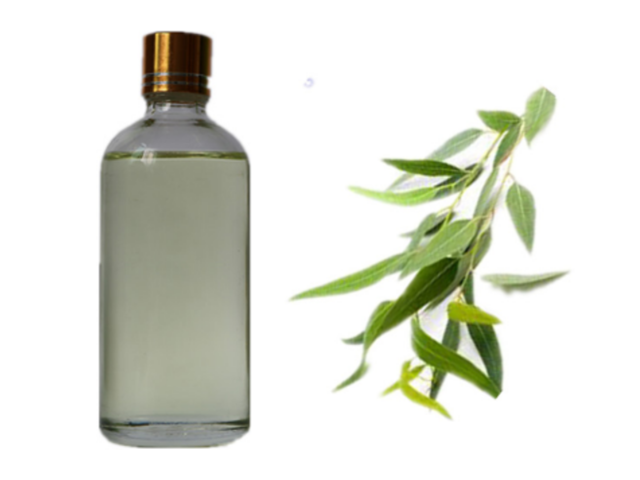
You Will Need
- 10 mL of lemon eucalyptus oil
- 90 mL of any carrier oil (olive or coconut oil)
What You Have To Do
- Take a 100 mL bottle and add 10 mL of lemon eucalyptus oil to it.
- Add 90 mL of any carrier oil to the lemon eucalyptus oil and mix well.
- Apply this mixture directly to the affected area.
How Often You Should Do This
Reapply this mixture periodically, especially when you are outside.
Why This Works
Lemon eucalyptus oil contains compounds like citronellal and p-methane 3,8-diol (PMD). While citronellal is believed to show a little repellency against mosquitoes, PMD is highly effective against these tiny creatures.
Tip
PMD is present only in trace amounts in lemon eucalyptus oil, and hence, this essential oil needs to be processed and purified to convert some of its citronellal into PMD. Processed and purified lemon eucalyptus essential oil can be highly effective against mosquitoes when applied topically.
2. Peppermint Oil And Coconut Oil
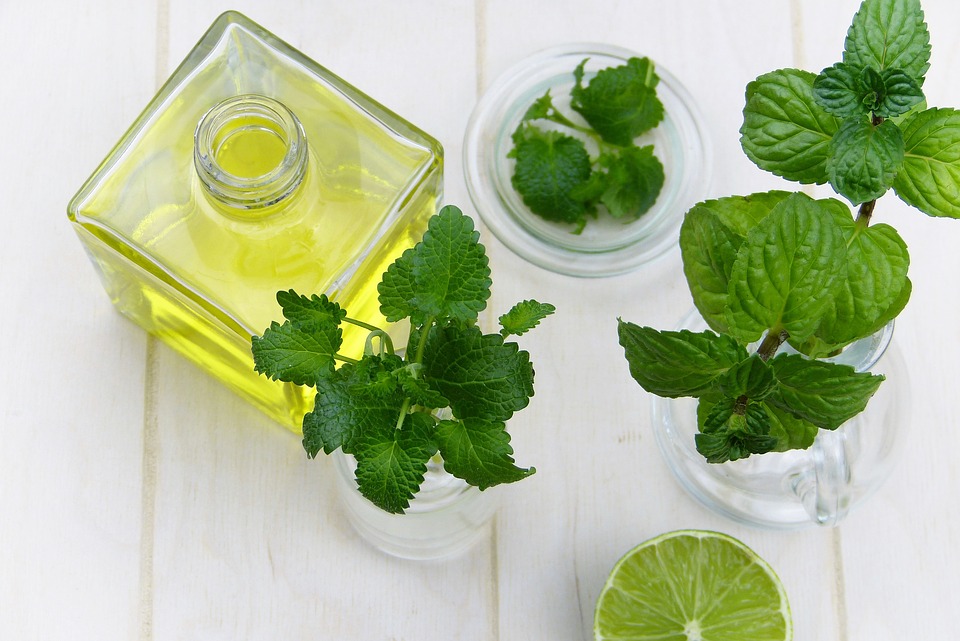
You Will Need
- 12 drops of peppermint oil
- 30 mL of coconut oil
What You Have To Do
- Mix peppermint oil with coconut oil.
- Apply this mixture directly to your hands and legs.
How Often You Should Do This
Do this 2-3 times before you go out.
Why This Works
Peppermint oil is another essential oil that works well in repelling mosquitoes. Combining it with coconut oil enhances its mosquito repellent potential and basically makes it your very own natural bug repellent. While peppermint contains compounds like limonene and menthol that keeps mosquitoes at bay, coconut oil contains unsaturated fatty acids and emulsifiers that slow down the evaporation of the repellent molecules of peppermint oil.
3. Neem Oil And Coconut Oil
You Will Need
- 10 drops of neem oil
- 30 mL of coconut oil
What You Have To Do
- Add neem oil to coconut oil.
- Mix well and apply this directly to the exposed areas of your body.
How Often You Should Do This
Apply this at least twice a day.
Why This Works
Neem oil is derived from the seeds and fruits of the neem tree. It is believed to have natural mosquito-repelling properties due to its composition and strong aroma. In fact, a study has proved that 2% neem oil, when used in combination with coconut oil, provided significant protection against different species of mosquitoes.

4. Apple Cider Vinegar With Essential Oils Spray
You Will Need
- 50 mL of apple cider vinegar
- 50 mL of water
- 10-12 drops of essential oil (clove, citronella or eucalyptus oil)
What You Have To Do
- Mix apple cider vinegar and water in equal proportions.
- Add a few drops of an essential oil of your choice and mix well.
- Store this solution in a bottle with a pump.
How Often You Should Do This
Spray this on yourself before you head out.
Why This Works
Apple cider vinegar is an effective and mess-free base that can be used to increase the repellent potential of certain essential oils. When you use a carrier oil with an essential oil, it can end up becoming oily and messy and make you feel uncomfortable. In such situations, a non-oily base is appreciated. ACV promotes the repellent activity of essential oils by creating a slightly acidic pH on the surface of your skin, which can lure mosquitoes away from you.
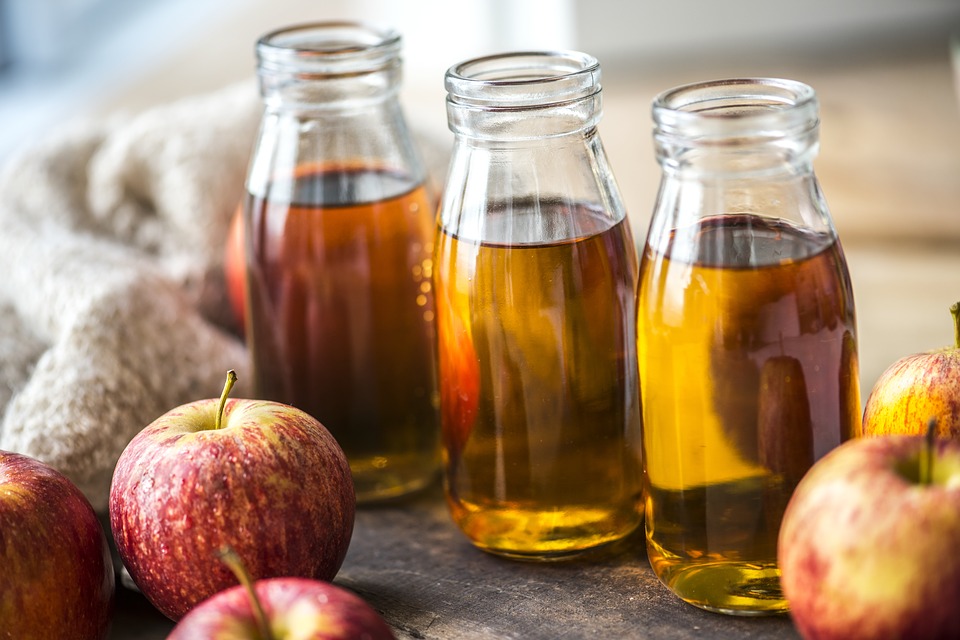
5. Tea Tree Oil And Coconut Oil
You Will Need
- 10 drops of tea tree oil
- 30 mL of coconut oil
What You Have To Do
- Mix tea tree oil with coconut oil.
- Apply directly to the exposed areas of your skin.
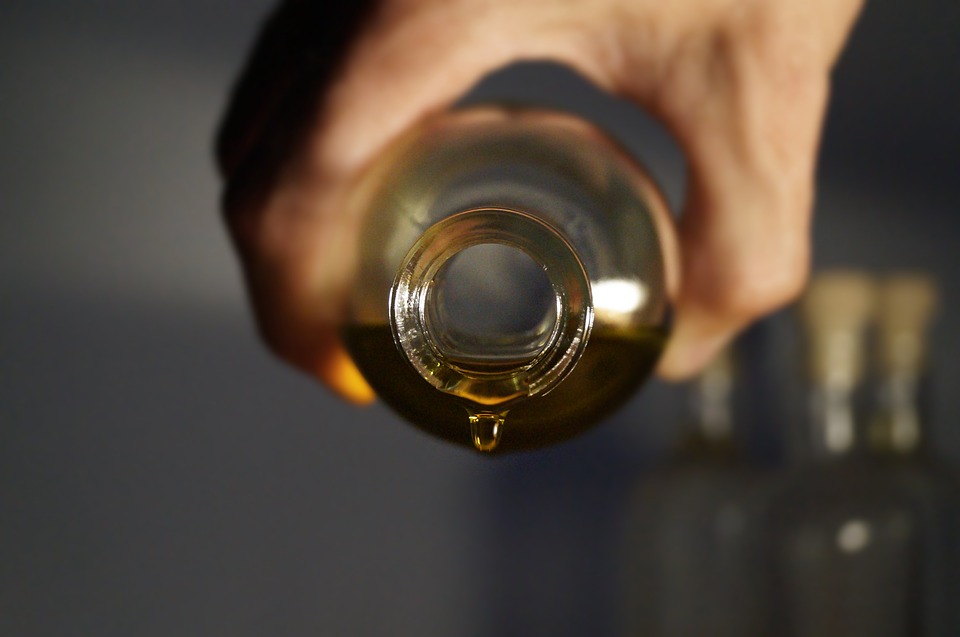
How Often You Should Do This
You can do this 2 to 3 times before going out.
Why This Works
Tea tree oil is widely used for its medicinal properties. Its powerful antiseptic and anti-inflammatory properties are said to prevent and heal mosquito bites quickly. The strong aroma of tea tree oil is another factor that keeps mosquitoes at bay. However, it is quite strong and hence should be used in combination with a good carrier oil like coconut oil.
6. Citronella Oil And Alcohol Spray
You Will Need
- 10 mL of alcohol
- 10 drops of citronella oil
- 90 mL of water
What You Have To Do
- Mix alcohol and water in the specified proportions.
- To this, add citronella oil and mix well.
- Put this in a bottle and spray on the exposed areas of your body.
How Often You Should Do This
You must do this 2 to 3 times daily before you go outside.
Why This Works
Citronella oil is obtained from the leaves of the lemongrass plant. It contains many compounds like citronellal, geraniol, citronellol, citral, and limonene that exhibit mosquito repellent properties. It is almost as effective as DEET (a widely used chemical-based mosquito repellent). When mixed with alcohol, the efficiency of citronella oil increases. This is because of the presence of thiamine in alcohol, the smell of which repels mosquitoes.
7. Cinnamon Oil Spray
You Will Need
- 10 drops of cinnamon oil
- 30-40 mL of water
What You Have To Do
- Mix the cinnamon oil with water.
- Mix well and spray this solution on the exposed areas of your body.
How Often You Should Do This
Do this before you head out.
Why This Works
Cinnamon oil is extracted from cinnamon bark and is one of the widely used homemade mosquito repellent. Four components of cinnamon oil, namely, cinnamyl acetate, eugenol, cinnamaldehyde, and anethole have the strongest mosquito repelling properties against the Aedes aegypti mosquitoes. And out of these, cinnamaldehyde exhibits the strongest activity.
8. Lavender Oil, Vanilla, And Lemon Juice Spray

You Will Need
- 10-12 drops of lavender oil
- 3-4 tablespoons of vanilla extract
- 3-4 tablespoons of lemon juice
- 1-2 cups of water
What You Have To Do
- Mix the lavender oil with vanilla extract and lemon juice.
- Add this mixture to two cups of water.
- Shake this solution well and spray it on your exposed body parts.
How Often You Should Do This
You can do this 2 to 3 times daily if you live in a mosquito-prone area.
Why This Works
While the smell of lavender essential oil has a calming effect on us, it is quite repelling to mosquitoes. Lavender oil contains compounds like limonene, linalool, eucalyptol, and camphor, all of which are known to naturally repel mosquitoes and insects. Vanilla has natural insect repelling properties, and lemon juice has high acid content that helps in keeping mosquitoes at bay.
9. Lemongrass And Rosemary Essential Oil
You Will Need
- 10 drops of rosemary essential oil
- 10 drops of lemongrass essential oil
- 60 mL of any carrier oil (coconut or jojoba oil)
What You Have To Do
- Mix the essential oils with the carrier oil.
- Apply this mixture directly to the exposed areas of your body.
- You can also add these essential oils to 60 mL of water and use the solution as a spray.
How Often You Should Do This
Do this at least twice daily.
Why This Works
Lemongrass and rosemary essential oils are amazingly effective natural mosquito repellents. Lemongrass essential oil contains mosquito repelling components like limonene and citronella, while rosemary oil gets its mosquito repelling properties due to the presence of compounds like eucalyptol, camphor, and limonene in it.
10. Mouthwash And Epsom Salt Yard Spray
You Will Need
- A large bottle of mouthwash (preferable mint flavored)
- 3 cups of Epsom salt
- 12 oz can of beer (optional)
What You Have To Do
- Take a large bottle of any store-bought mouthwash and add Epsom salt to it.
- Mix well until the salt dissolves.
- You can also add about 12 oz of beer to it for additional benefits.
- Spray this solution around your home.
How Often You Should Do This
You can spray this outside or around your home twice daily.
Why This Works
Most mouthwashes have compounds like eucalyptol, menthol, and thymol that act as mosquito repellents. Some mouthwashes also have high alcohol (ethanol) content, which aids in repelling mosquitoes. Epsom salt can help ward off insects and other microbes in addition to the mosquitoes.
11. Baking Soda With Vinegar Mosquito Trap
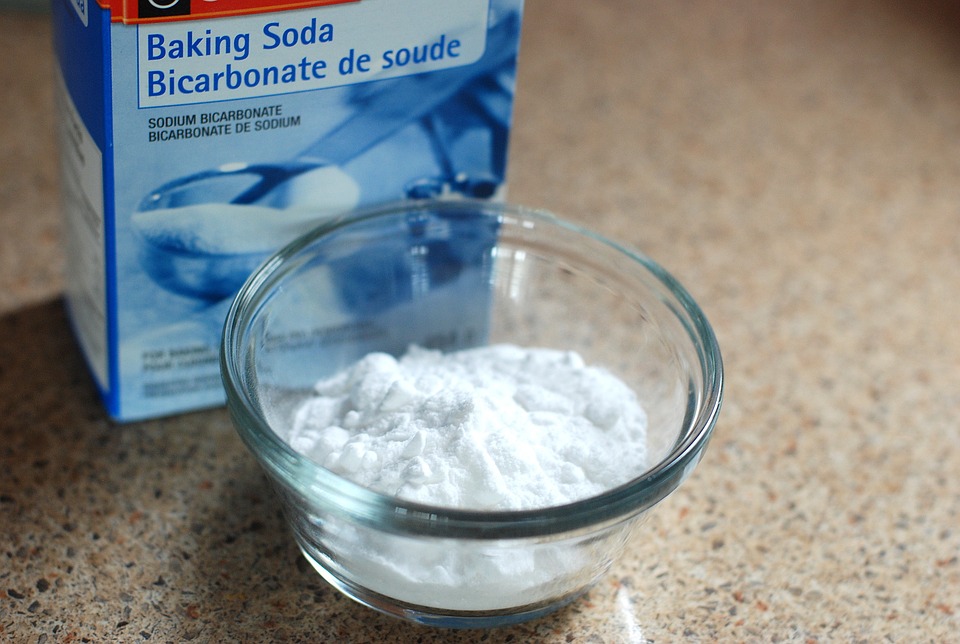
You Will Need
- 1 cup of vinegar
- 1/4 cup of baking soda
What You Have To Do
- Take an empty bottle and cut it into half.
- Add baking soda to the bottom part of the bottle.
- Take the top part of the bottle and invert it so that it looks like a funnel.
- Place the inverted half of the bottle on top of the bottom half.
- Pour vinegar into this and place it outside your room.
How Often You Should Do This
Do this whenever there is an increase in the number of mosquitoes in your area.
Why This Works
When baking soda comes in contact with vinegar, the reaction between the two releases carbon dioxide. Carbon dioxide attracts mosquitoes and hence can be used to trap and kill them.
12. Rubbing Alcohol Spray
You Will Need
- 10 drops of any essential oil
- 30 mL of water
- 1 tablespoon of alcohol
What You Have To Do
- Mix the essential oil with rubbing alcohol and
- add water to this.
- Pour this solution into a spray bottle and shake well.
- Spray this solution on the exposed areas of your body.
How Often You Should Do This
Do this 2 to 3 times daily.
Why This Works
Rubbing alcohol dissolves oils better than water. Hence, the repellency potential of essential oils is more when they are used in combination with it. Rubbing alcohol can also heal mosquito bites when applied topically. It is also used in combination with vegetable oils to repel and kill insects and bugs. Use this trick to make a homemade bug spray.
13. Garlic Spray
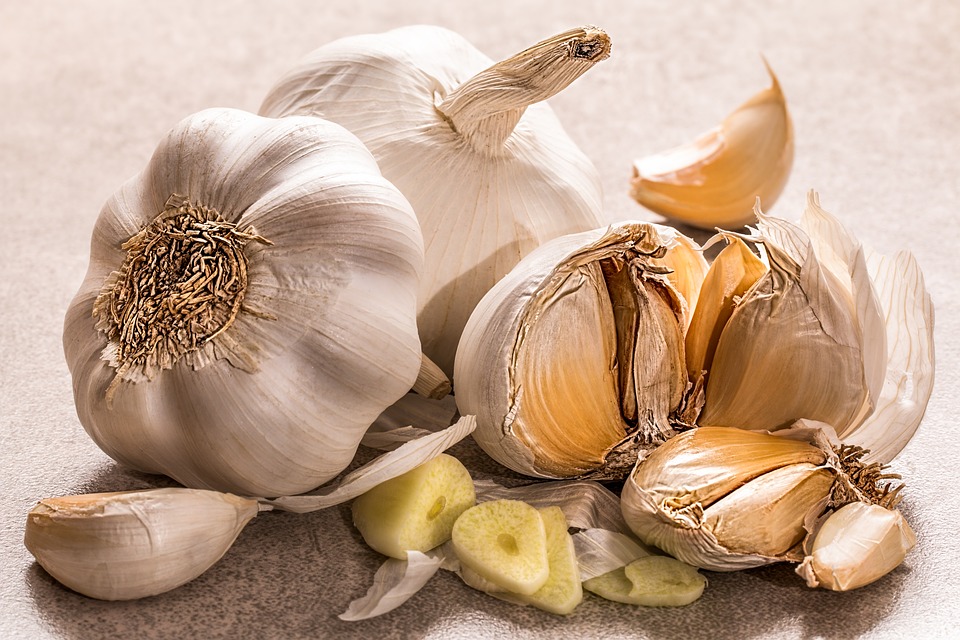
You Will Need
- 5-6 garlic cloves
- 1 tablespoon of mineral oil
- 1 teaspoon of lime juice
- 2 cups of water
What You Have To Do
- Mince the garlic cloves and add a tablespoon of mineral oil to this.
- Soak overnight and strain the garlic.
- Collect the infused oil and add lime juice and water to it.
- Spray this solution on the plants around your homes.
- You can also spray this garlic solution on the exposed parts of your body.
How Often You Should Do This
Do this 2 to 3 times daily.
Why This Works
Garlic contains a compound called allicin that exhibits a strong repelling action against mosquitoes. Additionally, garlic also has a strong aroma that repels mosquitoes. It is also widely used as a natural insect repellent. The acidic nature of lemon juice enhances the repelling properties of garlic.
14. Cloves With Lime
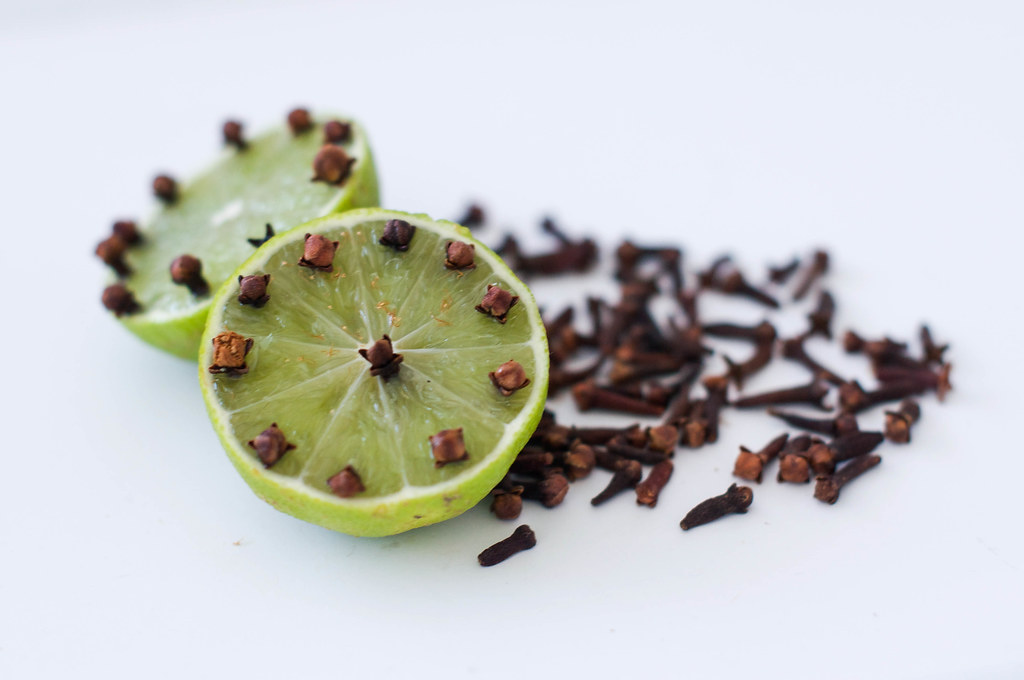
You Will Need
- 10-12 cloves
- 1 lemon
What You Have To Do
- Take a lemon and cut it into half.
- Insert 5-6 cloves into each half of the lemon.
- Place this in your room or wherever there are too many mosquitoes.
- Alternatively, you can also mix clove oil with a carrier oil and apply it to the exposed areas of your body.
How Often You Should Do This
You can do this twice daily to steer clear of mosquitoes for the rest of the day.
Why This Works
This is one of the most widely used homemade mosquito repellent. Clove is another herb that is quite effective in repelling mosquitoes and various insects. The strong aroma of clove and the presence of a compound called eugenol give it its repelling properties. Studies have also proven clove essential oil to be one of the best natural insect repellent.
Caution
Clove oil can be quite irritating, and it also has a strong fragrance. Hence, it must be used only in combination with a carrier oil for topical application.
All these remedies can be used either as standalone solutions or in combination to repel mosquitoes in the easiest and most natural way possible. However, be careful while using essential oils as a few of them could cause skin irritation. It is recommended to use essential oils only in combination with a carrier oil or some other safe solvent while applying them topically. Wait no more and start using these remedies against those tiny blood-sucking creatures and let us know if you were successful in getting rid of them for good.
Expert’s Answers For Readers’ Questions
Which are the plants that help with mosquitoes?
Plants like lavender, rosemary, citronella, and basil act as natural mosquito repellents.
Do electronic mosquito repellents really work?
There is an ongoing debate on whether electronic mosquito repellents really work or not. While scientists have not found any supporting evidence, many individuals have testified that these electronic mosquito repellents work. However, the sound of the ultrasonic electronic mosquito repellents can be quite irritating.
